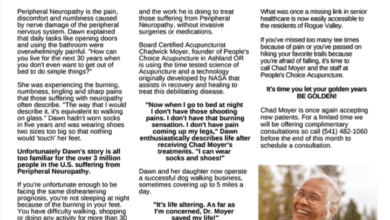Rest Assured, Sleep Essentials
Some time ago, a 13-year-old named Ryan came to see me for severe fatigue. Ryan and I bonded a bit over conversation about video games, and as we discussed his case it became obvious he was not getting enough sleep. I spoke to him about the importance of sleep hygiene for his health and well-being. His parents were insistent that there must be an infection or some other chronic disease process. Not discounting the possibility, we ran a battery of tests. His tests came back with a few low-end of normal nutrients and so I recommended some minor supplementation to help. However, his fatigue persisted with minimal benefit from supplementation. At a follow-up appointment, his parents expressed disappointment that he was not improving, despite the testing and treatment. I asked them if he was following the sleep hygiene recommendations I had made, and they responded with a resounding “yes.” I agreed to run more tests and they agreed to do a couple of random late night/early morning check-ins on their son before our next appointment.
The next appointment was one to remember. Ryan and his parents arrived in the clinic and the first thing I noticed was how much healthier and energetic he was. The once quiet, half-asleep lethargic young man was conversant and happy. His parents chimed in, “As you can see Doc, Ryan is doing fantastic. It turns out that we needed to move the computer he had in his room into our living room because he was having difficulty turning it off at night and wasn’t getting enough sleep. Ryan has been feeling so much better ever since we did that!” We all laughed about their oversight around this aspect of his sleep hygiene and I made a few changes to his plan before they left. After that, Ryan’s grades continued to improve and he went back to living life fully again.
Sleep is an essential aspect of our existence. The pattern of sufficient rest and work allows us to exist in harmony with the earth’s day/night cycles and brings about lasting health benefits. Insufficient sleep has been linked to the development of a number of chronic diseases and conditions, including type 2 diabetes, cardiovascular disease, obesity, and depression.
If you struggle with sleep, here are a few sleep hygiene suggestions:
1. Avoid blue light 2 hours before bed. Many screens have settings that switch to night mode that can help. Blue light blocking glasses can help with this as well. Our bodies are designed to get us ready for sleep as the sun shifts spectrums while it sets.
2. Turn off screens 2 hours before bed. Not only does this help us avoid blue lights but it also takes away stimulation that may be keeping our minds active and not allowing for transition to sleep.
3. Drink something warm 1 hour before bed. Whether it’s warm milk or chamomile tea, drinking something warm can create an atmosphere that allows us to relax and can be very soothing.
4. Read a boring book in bed. What I mean by boring is something you might find interesting to learn but is not so riveting that you resist sleep as your eyes begin to feel fatigued.
5. Try progressive muscle relaxation. While lying in the dark in bed, take deep breaths, and on every breath, imagine a specific muscle group relaxing. Do this from feet to head or head to feet in as many cycles needed to drift off.
I’d be happy to help you with sleep issues or any other acute or chronic condition, including cancer. We’re offering a special introductory rate for out-of-pocket consultations with me (in-person or virtual) that occur before February 28, 2023.




